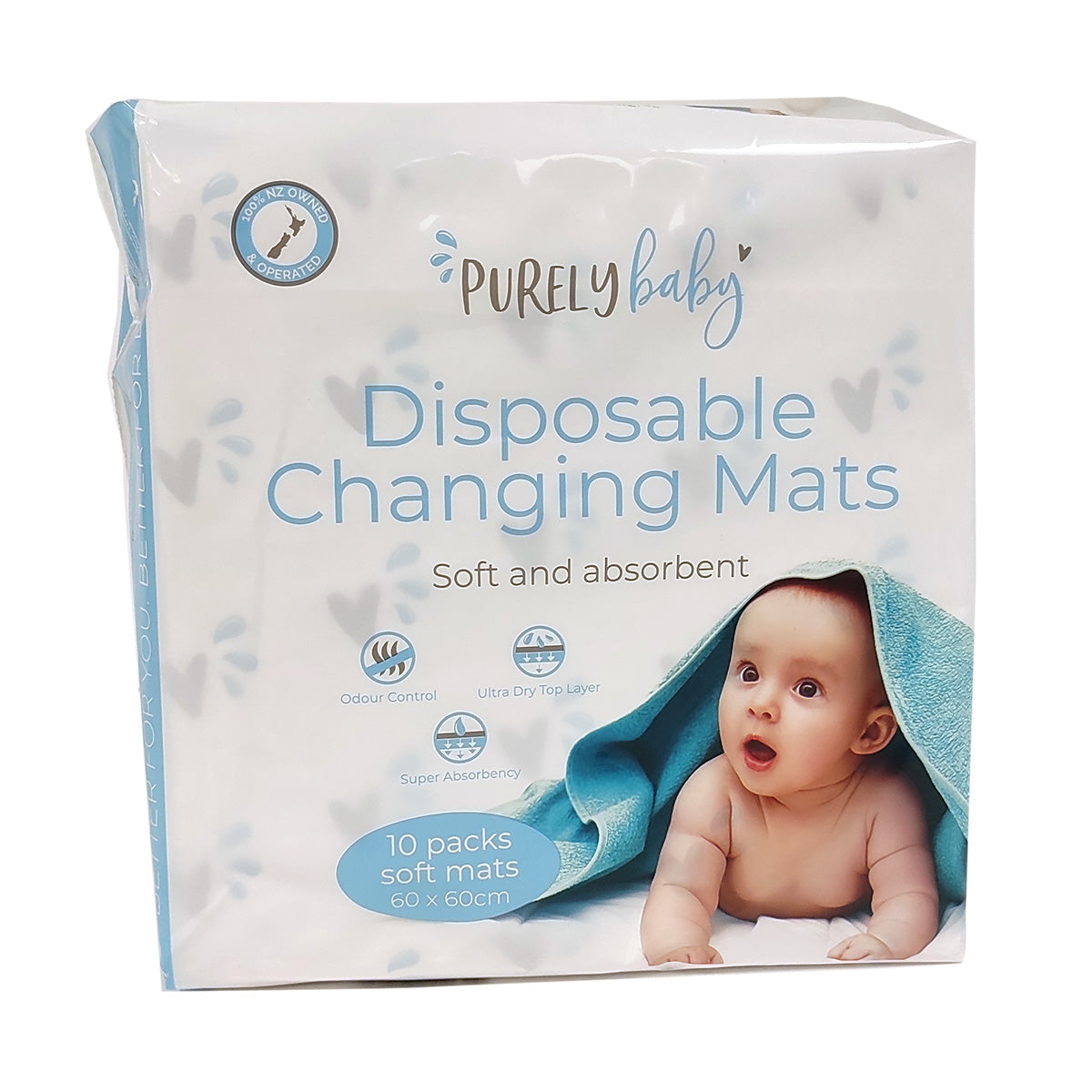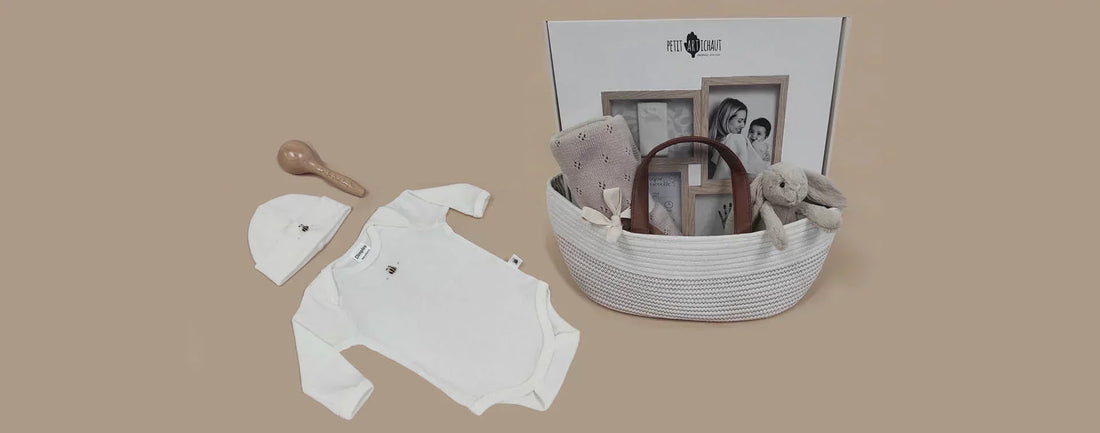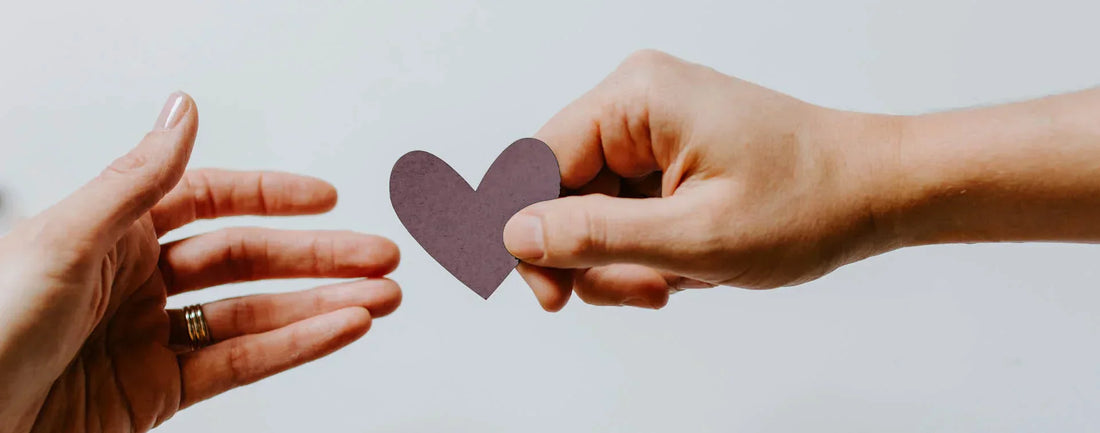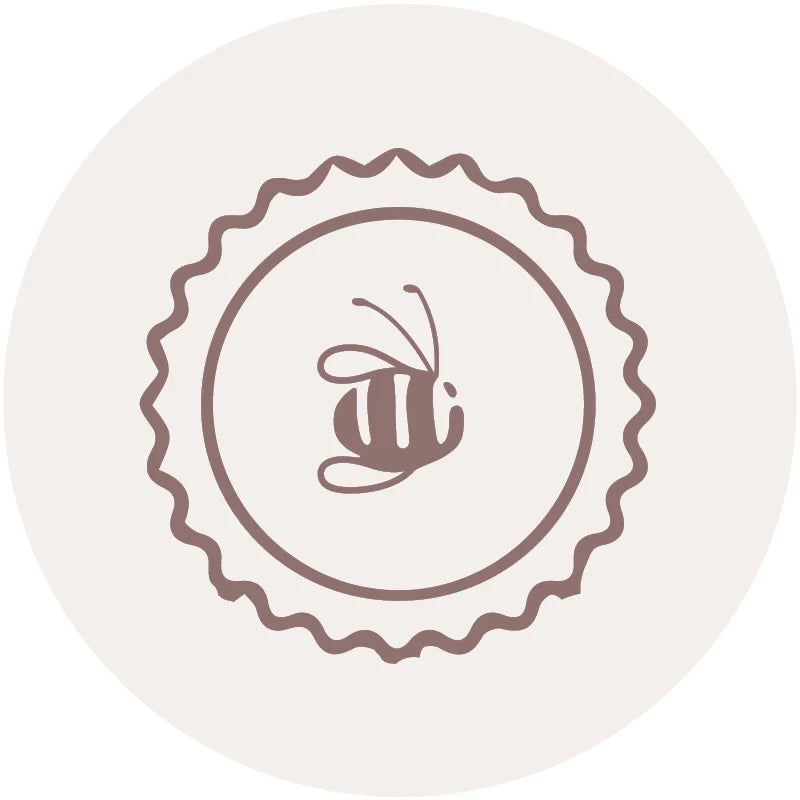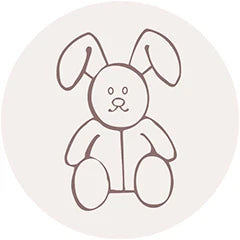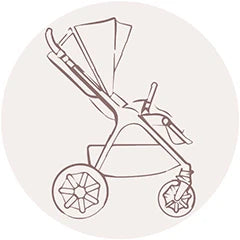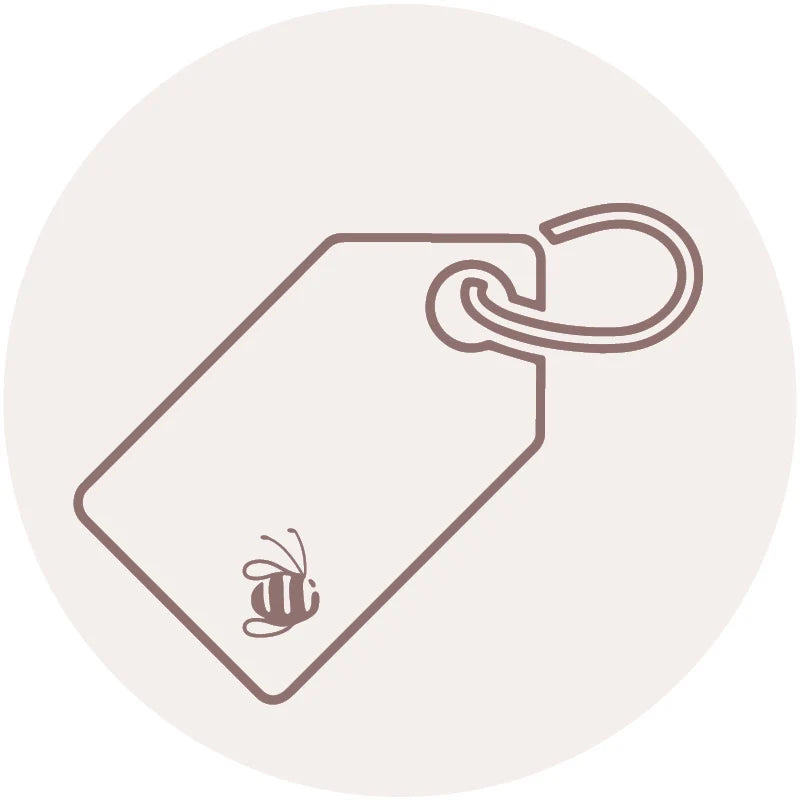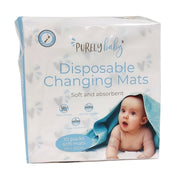Disposable Change Mats 10pk
Disposable Change Mats 10pk
SKU:PB103
Clothing Prem to 18 Months
| Size | Age Guide | Weight | Height |
|---|---|---|---|
| Premature | Premature or Small Newborn | Up to 4Kg | Up to 55cm |
| Newborn | 0-3 months | 4-6Kg | Up to 62cm |
| 3 Month | 3-6 months | 6-8Kg | Up to 68cm |
| 6 Month | 6-12 Month | 8-10Kg | Up to 76cm |
| 12 Month | 12-18 Month | 10-12Kg | Up to 84cm |
| 18 Month | 18-24 Month | 12-14Kg | Up to 92cm |
Clothing 2 to 6 Years
| Size | Age Guide | Height | Chest | Waist | Hip |
|---|---|---|---|---|---|
| 2 Year | 2-3 Years | Up to 100 cm | 56 | 51 | 58 |
| 3 Year | 3-4 Years | Up to 105 cm | 58 | 53 | 60 |
| 4 Year | 4-5 Years | Up to 110 cm | 60 | 55 | 62 |
| 5 Year | 5-6 Years | Up to 115 cm | 62 | 57 | 64 |
| 6 Year | 6-7 Years | Up to 120 cm | 64 | 59 | 66 |
Beanie Size Guide
| Size | Head Circumference | Age Guide |
|---|---|---|
| Premature | 31-35 cm | Premature or Small Newborn |
| Newborn | 35-40 cm | Newborn |
| Small | 40-43 cm | 3-6 Months |
| Medium | 43-47 cm | 6-18 Months |
| Large | 47-52 cm | 18-3 Years |
Sunhat Size Guide
| Size | Head Circumference | Age Guide |
|---|---|---|
| Newborn | 37-40 cm | Newborn |
| Small | 40-43 cm | 3-6 Months |
| Medium | 43-46 cm | 6-12 Months |
| Large | 46-49 cm | 12-24 Months |
| Xtra Large | 49-54 cm | 2-4 Years |
Sleep Pods Size Guide
| Size | Weight | Age Guide | Measurement(Back to Hem) |
|---|---|---|---|
| Newborn | 0-6 kgs | 0-3 Months | 60.5 cm |
| Small | 0-8 kgs | 3-6 Months | 66 cm |
Booties Size Guide
| Size | Age Guide |
|---|---|
| Newborn | 0-3 Months |
| Small | 3-6 Months |
| Medium | 6-12 Months |
| Large | 12-18 Months |
Pretty Brave Baby
| Foot Length (mm) | Insole Length (mm) | EU | UK | Age | INT |
|---|---|---|---|---|---|
| 95-104 | 110 | 16/17 | 2 | 0-6m | S |
| 104-114 | 118 | 18 | 3 | 6-12m | M |
| 114-123 | 127 | 19/20 | 4.5 | 12-18m | L |
| 123-137 | 142 | 21/22 | 5.5 | 16-22m | XL |
Pretty Brave 1st Walker
| Foot Length (mm) | Insole Length (mm) | EU | UK | Age |
|---|---|---|---|---|
| 114-120 | 125-128 | 19 | 3 | 1 yr |
| 120-126 | 132-135 | 20 | 3.5 | 1-2 yrs |
| 126-132 | 138.5-141.5 | 21 | 4.5 | 1-2 yrs |
| 132-138 | 145-148.5 | 22 | 5 | 2 yrs |
Crywolf Swim Nappy
| Size | Length (waist to crotch) | Crotch Width (side to side) |
|---|---|---|
| 0-1 yr | 1-2 yrs | |
| 37 | 38 | |
| 14.5 | 15.5 |
Crywolf Rash Suit
| Size | Length (back neck to crotch) | Chest (arm to arm) | Waist (side to side) | Sleeve (neck to cuff) | Neck Opening(diameter) |
|---|---|---|---|---|---|
| 6-12 Months | 1 yr | 2 yrs | 3 yrs | ||
| 40 | 42 | 44 | 46 | ||
| 25 | 26 | 27 | 28 | ||
| 24 | 25 | 26 | 27 | ||
| 30 | 31.5 | 33 | 34.5 | ||
| 13.25 | 13.25 | 13.8 | 14.3 |
In stock
Couldn't load pickup availability
Overview
Overview
Purely Baby Disposable Changing Mats are absorbent, compact and disposable, perfect for changing your baby on the go.
Our mats are perfect for changing your baby whilst on the go. The compact folded size makes them ideal to fit into your bag and makes changing baby’s nappy easy and simple, wherever you are. Designed to offer maximum comfort and protection to your baby, no more cold changing areas! Purely Baby® changing mats have an extra soft breathable top layer to promote rapid absorption of liquid into the mat, with a waterproof film backing sheet to catch any ‘accidents’.
What's Included
What's Included
Technical Specification
Technical Specification
User Guide
User Guide
Delivery and Returns
Delivery and Returns
- Delivery: Free within NZ on orders over $100 (excluding bulky items) or $8 standard shipping
- Returns: Accepted within 14 days of receipt with proof of purchase
- Some items are excluded from returns including sale items, hardware, car seats, prams, monitors and personal items - please click here for the full list.
Share this product
Recently Viewed Products
Related Blogs
Baby Swimming Lessons
Swimming is a key life skill, especially when you live in NZ - an island nation with a vast coastline, not to mention all the rivers and lakes. Taking your little one to swimming lessons can have many benefits including the physical (coordination, strength, and motor skills). It’s also a bonding opportunity for Mum, Dad or caregiver to have fun interactions with baby and create memories. And of course, there’s the safety benefit. According to Water Safety NZ, one of the leading causes of death for the under-fives in New Zealand is drowning. Introducing your baby to swimming lessons can be a fantastic way to help them develop water safety skills as well as confidence. Start them young Babies spend their first nine months of existence floating in a pool of warm liquid, so reintroducing them to water is something of an instinctive experience. A good first step to developing water confidence in babies is making bath time engaging and enjoyable. If, with lots of positive reinforcement and support, you can get them used to having water trickling over their head and face, that’s a great start. Swimming lessons Once they’re six months old, babies can go to water safety lessons at a public pool By this age Their immune system will have developed enough give them protection from bugs in the pool water They’re better able to cope with the changes in temperature They’ll have the necessary head control to keep their head above water Their ears will be better able to deal with water if it gets in. Baby swimming classes are less about learning to swim and more about water familiarisation and confidence. Over time they’ll start to make progress towards essential water safety skills, including how to float, kick, and hold their breath. Generally with baby swim classes, Mum or Dad (or grandparent or other caregiver) gets in the pool too, joining in to help build bub’s confidence and keeping things fun with interactive play. It’s likely to start with gentle splashing and activities that encourage movement through the water. Tips for swimming lessons Family changing rooms are great and, if there's room, take your stroller. If you get your little one changed, they can then sit in the stroller while you get changed. Swimming will use up lots of energy – make sure you’ve got what you need to re-fuel them afterwards, whether it's a breast or bottle feed, or a snack Changes in temperature can be hard on little ones – make sure you dress them warmly for the trip out to the car in colder weather. If possible, bring along an extra person to help, it can make all the difference especially if you have both a baby and an older child having lessons. What you need Babies will need a swim nappy . These reusable ones offer an adjustable fit from baby to toddler and are machine washable. When choosing swimwear, opt for chlorine-resistant swimsuits for girls and boys that offer 50+ sun protection so they work for the pool or beach A towel Hooded towel or robe can be great for getting them warm and dry quickly A padded change mat is great to have when faced with a damp changing room Dry clothes and spare nappies to keep everyone snug and happy post-swim. Be Safe Always be aware of the dangers for little ones around water – be that the bath, beach or pool. Never leave them unattended. Babies and toddlers should always be within arms’ reach when you’re in or around water - don’t rely on flotation aids like air rings or armbands. Be alert to hazards in your environment. Swimming pools and spas must be fenced to NZ Standards. Consider also ponds, water features and paddling pools that might be a danger to a curious little one.
Learn moreNewborns & Sleep: What to Expect and Survival Tips
Bringing a new baby home is one of life’s most beautiful - and exhausting - adventures. In this blog, Family Sleep & Wellness Coach, Lauren Moran from Little Dreamers, shares her expert advice on newborn sleep in the fourth trimester.
Learn moreYour Wishlist, Made Easy
Creating a gift registry takes the guesswork out of gifting for you and your loved ones. While the journey of pregnancy can come with plenty of challenges, ticking off your shopping list doesn't need to be one of them.
Learn moreNavigating Emotions During Pregnancy and Postpartum: You’re Not Alone
Pregnancy and the postpartum period are times of incredible change, physically, emotionally, and mentally. You’ve entered a brand-new chapter in your life, one filled with love, learning, and sometimes, a little chaos. Your body is adjusting, your hormones are shifting, your routine is changing, and now there’s a tiny person who depends entirely on you. With such big changes, it’s completely natural to feel overwhelmed at times. These experiences can take a toll on your mental health, no matter how “small” the changes may seem. But one thing is certain, you’re not the first, and you’re not alone. Mood Swings Mood swings are incredibly common during pregnancy, postpartum, and even during menstruation. They happen when emotions change quickly or feel more intense than usual. While hormones play a big part in this, mood swings can also stem from things like lack of sleep, changes in routine, or neglecting your own needs.It’s important to care for yourself through these transitions so they feel a little smoother. Ways to Support Yourself During Mood Swings Take a walk to clear your mind. Fresh air and gentle movement can work wonders. If your baby has arrived, bring them along so you can both enjoy the change of scenery. Seek support from loved ones. Whether you need someone to talk to, help with the baby, or just company over a cup of tea, reaching out makes a huge difference. Connection is one of the strongest protectors of mental health. Create a little “you” space. It could be a cozy corner, a seat by a window, or a sunny spot outside. A quiet place to pause, breathe, and gather your thoughts can bring you back to centre. Keep up with small acts of self-care. Taking a shower can feel like a luxury with a newborn, but it truly helps. Products like the Nuna Leaf Grow can be a lifesaver, let your baby gently sway while you take a few minutes to refresh. Do your skincare routine, put on a face mask, or spend 10 minutes doing a hobby you love. Even short moments of care help your mind reset. Remember, no matter what you are feeling, your emotions are valid. If your moods are starting to affect your daily life, please reach out to your doctor, midwife, or a mental health professional. Your wellbeing matters deeply, both for you and for your new little family. Understanding Anxiety Anxiety has been part of human life since our earliest ancestors. In prehistoric times, it was a survival mechanism helping people stay alert to dangers like predators or the risk of being left out of their group. This “fight, flight, or freeze” response kept them safe.Today, we don’t face the same physical threats, but our brains still use the same alarm system. Instead of warning us about predators, anxiety now shows up in moments like worrying about parenting, work, or social situations, times when it may feel overwhelming or out of place. Feeling anxious during pregnancy is completely normal. The “what ifs” and the doubts about being a good parent can feel heavy and persistent. Many people experience this, but it’s still something that’s often under-recognised. There’s an important difference between feeling anxious and living with anxiety. Feeling anxious is a temporary and natural response; anxiety, on the other hand, is ongoing and can impact your daily life and wellbeing. Common Symptoms of Anxiety Excessive worry about your baby’s health, birth, or your ability to parent Physical symptoms like sweating, shortness of breath, or difficulty sleeping Intrusive or distressing thoughts about your baby Irritability, restlessness, or difficulty focusing These symptoms can affect sleep, appetite, and how you function day to day, sometimes even making it harder to bond with your baby. If your anxiety feels overwhelming, please reach out for support. You do not need to face this alone. Support in Aotearoa New Zealand Anxiety NZ: Call 0800 ANXIETY (0800 269 4389) or visit anxiety.org.nz PADA - Perinatal Anxiety & Depression Aotearoa: pada.nz for help specific to pregnancy, birth, and early parenting Need to Talk? Text or call 1737 anytime for free, confidential counselling; 1737.org.nz For Māori whānau, resources like Te Whare Tapa Whā and Whānau Ora offer holistic, culturally grounded support; visit manamokopuna.org.nz. For Pasifika families, PADA offers programmes such as Tama'ita'i Toa, and you can also explore stories like Sela’s Project: A Mother’s Cry at mentalhealth.org.nz. Reaching out is a sign of strength, not weakness. Help is available, and you deserve support. Postpartum Depression (PPD) After giving birth, some people experience postpartum depression (PPD) or anxiety, sometimes weeks, months, or even years after their baby arrives. It’s something that has existed throughout human history, yet it’s still under-researched and often misunderstood.If you’re experiencing symptoms of depression or anxiety, please know this is not your fault. These feelings do not define your worth or your ability to be a good parent. Common Symptoms of PPD Persistent low or flat mood Frequent irritability or loss of interest in usual activities Changes in appetite or sleep Constant fatigue Trouble concentrating or making decisions Some parents may also experience distressing intrusive thoughts about their baby. These can feel terrifying or shameful, but having these thoughts does not mean you want to harm your child. They are a symptom of your mental health, not a reflection of who you are. If you’re struggling with these thoughts or any of the symptoms above, please reach out for help. You are not alone, and there is care available to support both you and your baby. In Aotearoa, you can find support and information through Healthify NZ’s Postnatal Depression. Finding Your Balance Again While pregnancy and postpartum can bring moments of uncertainty and emotional ups and downs, they also bring incredible growth, connection, and love. You are learning new things about yourself every single day, how strong you are, how deeply you can care, and how resilient the human heart can be. Remember, there will be good days and harder ones, but none of them define you as a parent. The difficult moments will pass, and with time, support, and self-compassion, things will start to feel lighter again. Be gentle with yourself. You are doing one of the most important and beautiful things in the world: nurturing life, both your baby’s and your own. Take each day as it comes, celebrate the little victories, and remind yourself often: you’ve got this.
Learn more

